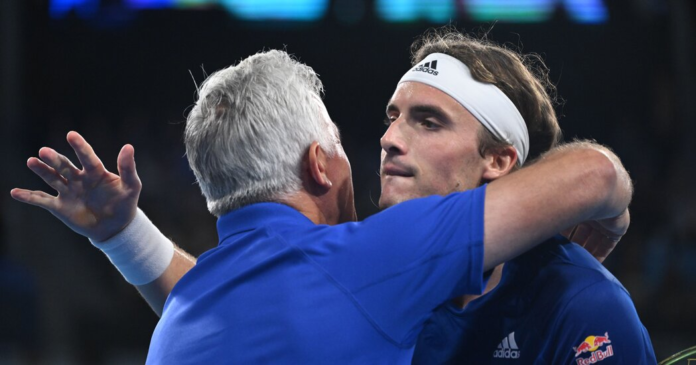“After that it’s too late,” he said.
The players themselves and people who have spent their lives around tennis say the advantages go far beyond technical tips or pointers on strategy. Rather, having an innate feel for what a child needs at a given moment, not on the court but off it, can serve as a differentiator along the way.
Mary Carillo, the former player who is now a tennis commentator, said the process usually begins with the child’s instinct to try to please their parents by emulating them. Then the parent tries to help the child enjoy the sport and get better at it by offering the requisite footwork and stroke technique. The children of pros begin to understand the rigor of the pursuit, that being like mom or dad is going to take a lot of hard work.
Holt, Austin’s son, said during an interview in September that he learned by watching his mother go about her daily business, long after her career ended, how competitive she was and the importance of trying hard all the time. Whether his mother was playing cards, tennis or something else, she always wanted to win. That rubbed off.
“If we were doing homework or chores and trying to take short cuts, that wasn’t acceptable,” he said. “You could not ever give less than your best. If you tried your hardest and got a bad grade on a test that was OK.”
Martin Blackman, the general manager of player development at the United States Tennis Association, has witnessed the development of several second-generation players, including Shelton and Korda. He said those parents understand that becoming a great player is a journey during which progress is not necessarily measured by matches won or trophies collected.
“It’s always about getting better, as a person first and then as a tennis-playing athlete,” Blackman said. “They know how hard it is so they don’t come down hard on their player-child after a poor result. They preserve their relationship with the individual. That combination gives players a tremendous amount of security and self-belief.”
Mandlik said recently that whenever things aren’t going well, she goes back to a phrase her mother first said to her years ago — “tough times don’t last; tough people do.”


